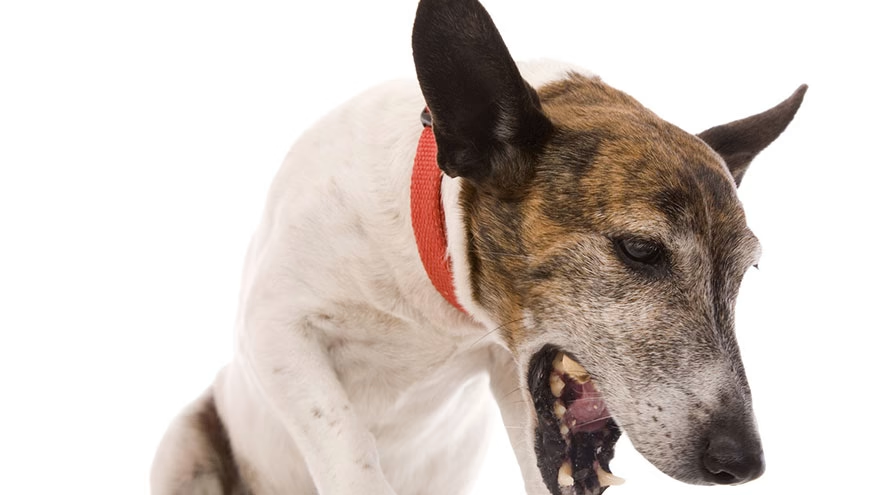Food allergies, contact allergies, allergies to vaccines, medications, insect bites and inhalant allergies may be the cause of a variety of symptoms. While symptoms may vary, those most often noted are scratching, poor coat condition, runny eyes, and hives or pustules on the skin. Dogs exhibiting signs of allergies should be seen by a veterinarian to determine the exact cause.

Food Allergies
Dogs that create allergies to ingredients in food or treats can exhibit symptoms that run the gamut from an upset stomach to scratching near their muzzle or paws and, in worse cases, development of hives as a reaction to the ingested allergen. Common dog food ingredients that can be a cause of food allergies are wheat, corn, soy, chicken, lamb, seafood, nuts, dairy products or preservatives.
Contact Allergies
Anything that your dog comes into physical contact with can be considered a cause for a contact allergy. Most common culprits are cleaning supplies, laundry products, lawn chemicals, fabrics or ingredients used in carpets or bedding, molds, mildews, grasses, plants, trees and weeds.Contact allergies can cause a dog to scratch, have a poor condition of coat, redness around the mouth, paws and eyes or break out in hives when coming into contact with the allergen.
Insect Allergies
When it comes to insects and allergies the most common culprit is the flea. Flea allergy dermatitis is caused due to the dog being allergic to the saliva the flea leaves on the skin after a bite. Symptoms most often cause incessant scratching, but those highly allergic can develop hives. Other common insect allergies, all of which can cause hives to those with a high sensitivity are to spiders, ticks, bees, wasps and mosquitoes. Mites are also problematic in dogs, but most mites are the cause of disease instead of allergies.
Allergies to Medications, Preventatives and Vaccines
If you notice that your dog has developed hives shortly after being administered a medication or vaccination, the ingredients in the medication or vaccination may be the cause. This reaction can also be seen in a dog who is allergic to flea, tick and heart worm preventatives shortly after those preventatives are applied or ingested. In these situations your veterinarian should be contacted immediately.
Inhalant Allergies
Like humans, dogs can suffer from seasonal or inhalant allergies. While most inhalant allergies do not cause hives, they can be seen in a dog with a high sensitivity to the allergen. Most common symptoms are those that mimic human hay fever symptoms and may include a discharge from the eyes or nose and redness or itching of the eyes, paws or skin.You Might Also Like :: Are ESA Dogs Allowed in Public Places?





0 Comments
No comments yet. Be the first to share your thoughts!
Leave a Comment